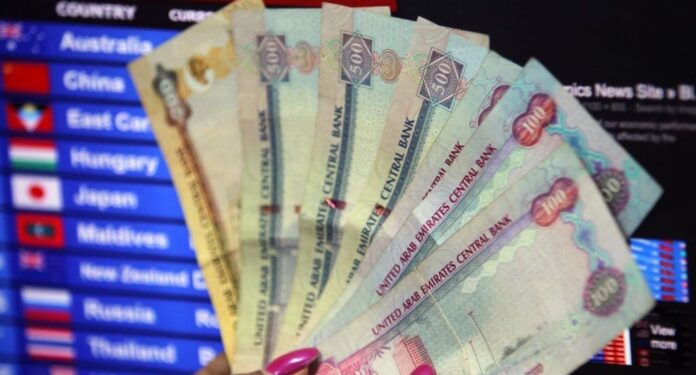Inflation in the UAE and Saudi Arabia was low despite global turmoil, thanks to government-imposed price controls, the dirham’s peg to the dollar and the growth of discounters, hypermarkets and e-commerce.
According to Euromonitor International, the UAE and Saudi Arabia set “exemplary standards” in reining inflation amid global economic headwinds due to the Russia-Ukraine crisis and climate change exacerbating prices of foods and commodities globally.
Euromonitor said inflation in the UAE and Saudi averaged around five per cent and 2.5 per cent, respectively, last year.
Global inflation rose to an average of 8.8 per cent in 2022 from 4.7 per cent in 2021, but UAE inflation averaged 4.8 per cent last year and is projected to fall to 3.2 per cent, according to the UAE Central Bank.
Economists expect the consumer price index in the UAE to drop this year and next. Oxford Economics forecast the consumer price index in the Emirates falling from 4.8 per cent last year to 3.4 per cent in 2023 and 2.2 per cent next year.
Currently, the UAE retail market is dominated by Carrefour, LuLu, Safeer Malls, Nesto and others. While e-commerce is led by Noon and Amazon. Plus, a number of discount supermarkets also dotted the local retail market, offering a viarety of products at a much cheaper rates.
In addition to price control policies, both the UAE and Saudi Arabia invested in strong social policies for their citizens to ensure the welfare of consumers by providing subsidies on basic goods, housing, education, and healthcare.
“The UAE and Saudi Arabia have set exemplary standards in maintaining inflationary stability amid the prevailing global economic headwinds. Through a combination of retail competition, government-imposed price controls, robust social policies, and a strategic currency peg to the US dollar, these nations have successfully mitigated the inflationary pressures that have beleaguered other economies. These policies are not just strategies for economic stability, but also reflect a commitment to ensuring the welfare and prosperity of their citizens as the global economy continues to navigate uncertainty,” said Euromonitor International analysts.
Moreover, enhanced competition in e-commerce allowed consumers in the UAE to find and purchase the most cost-effective deals more easily, it added.
source: khaleejtimes.com


